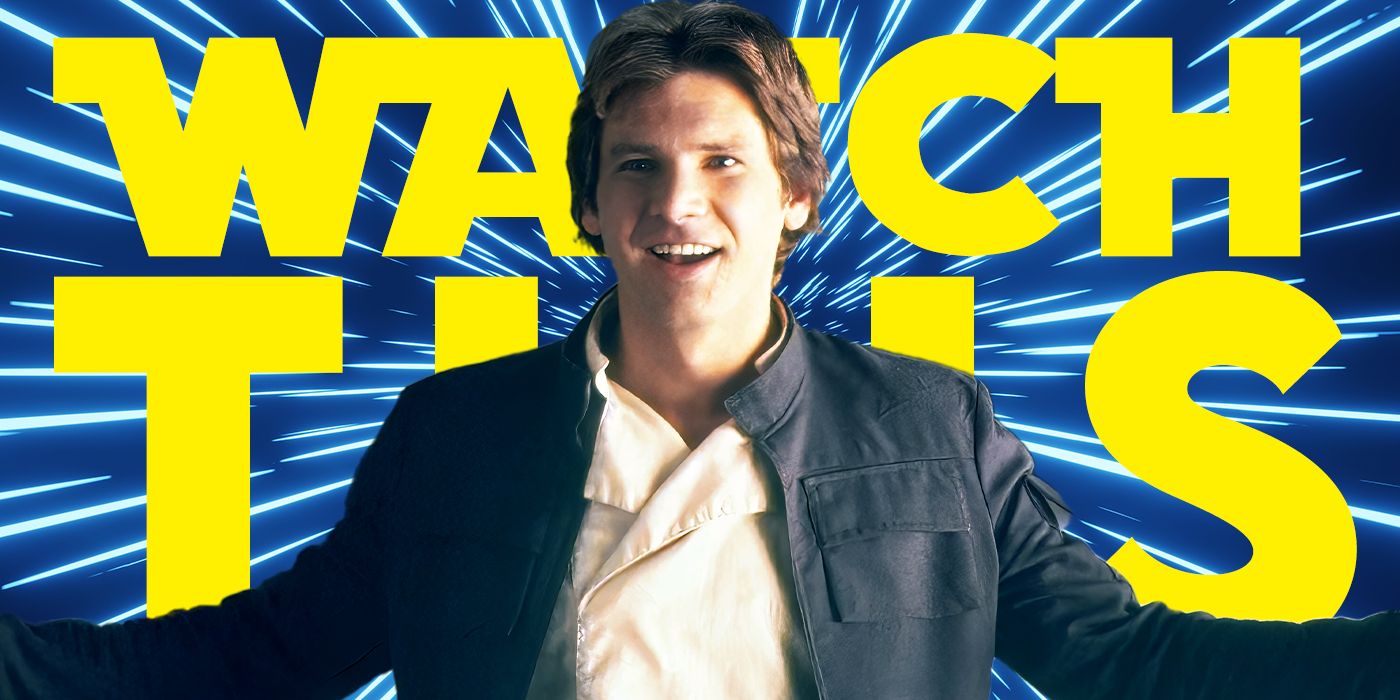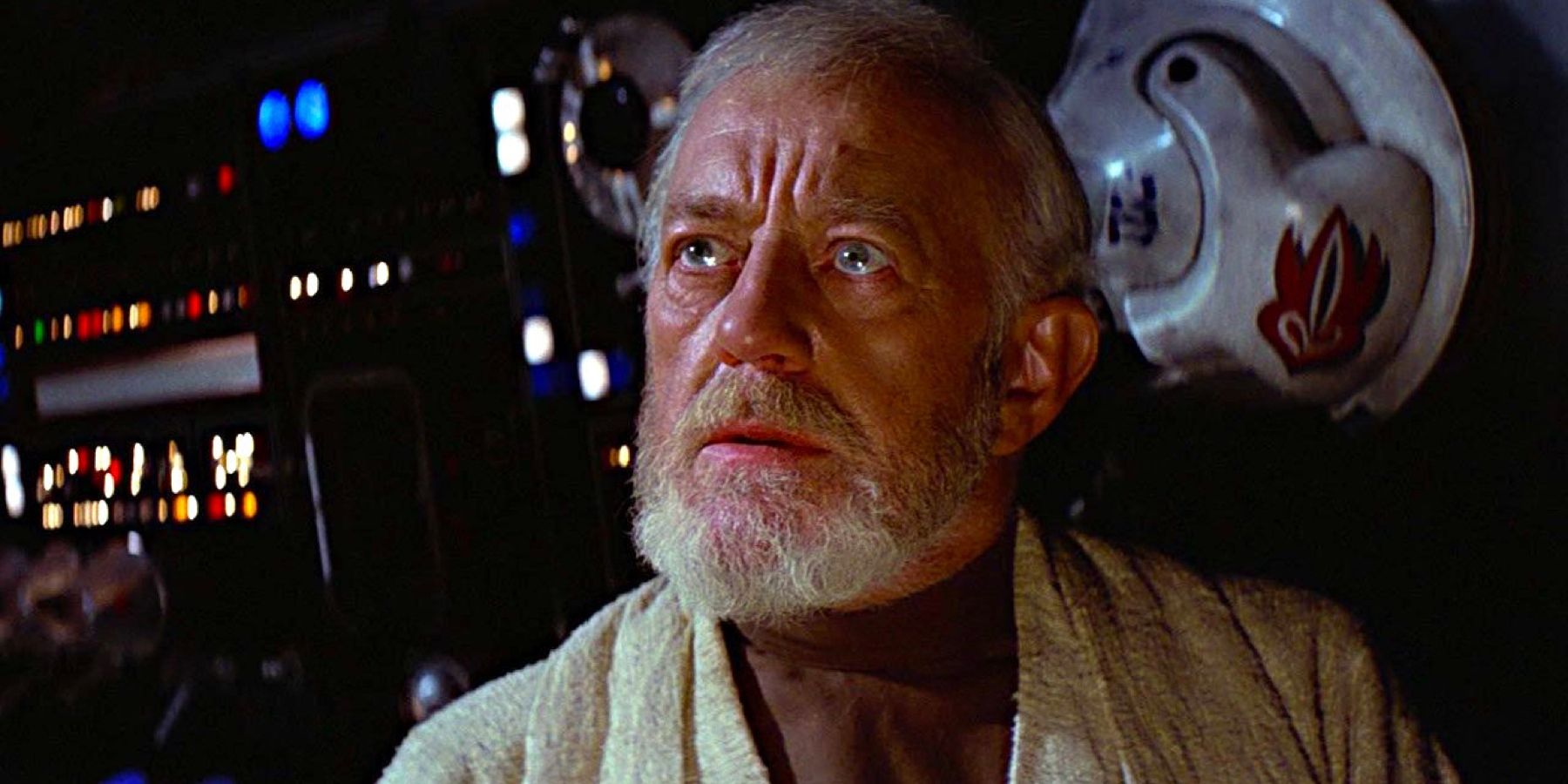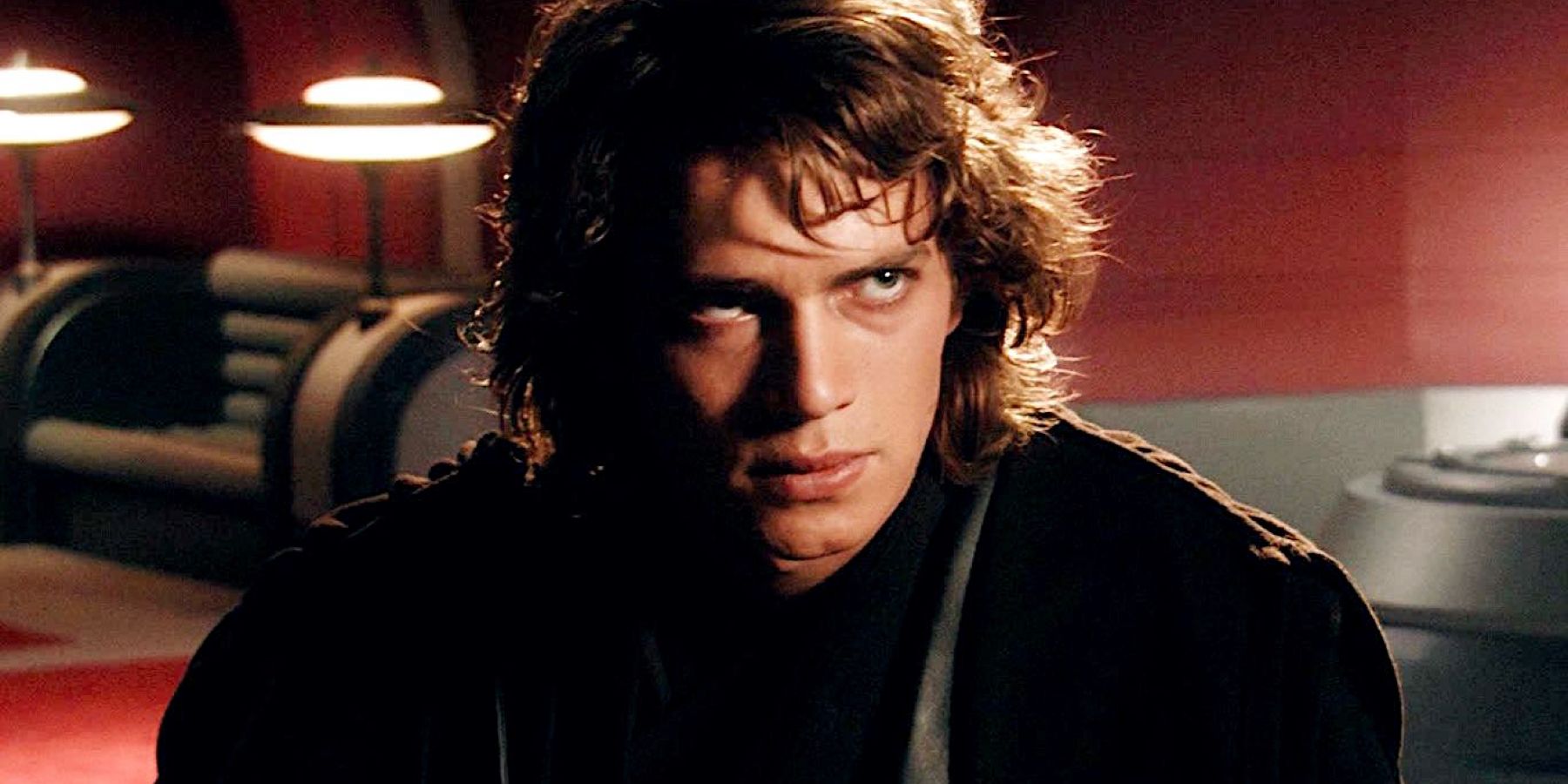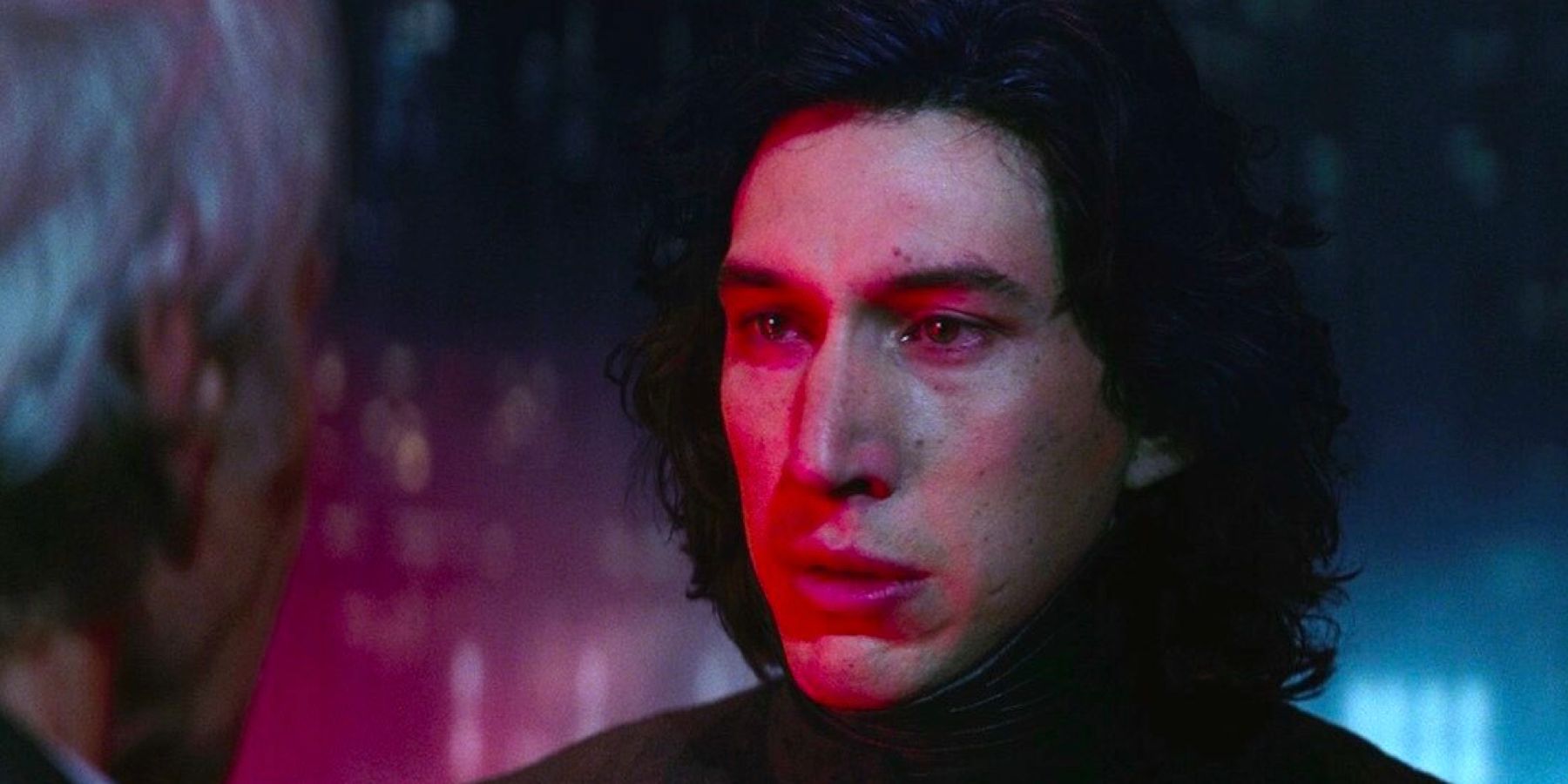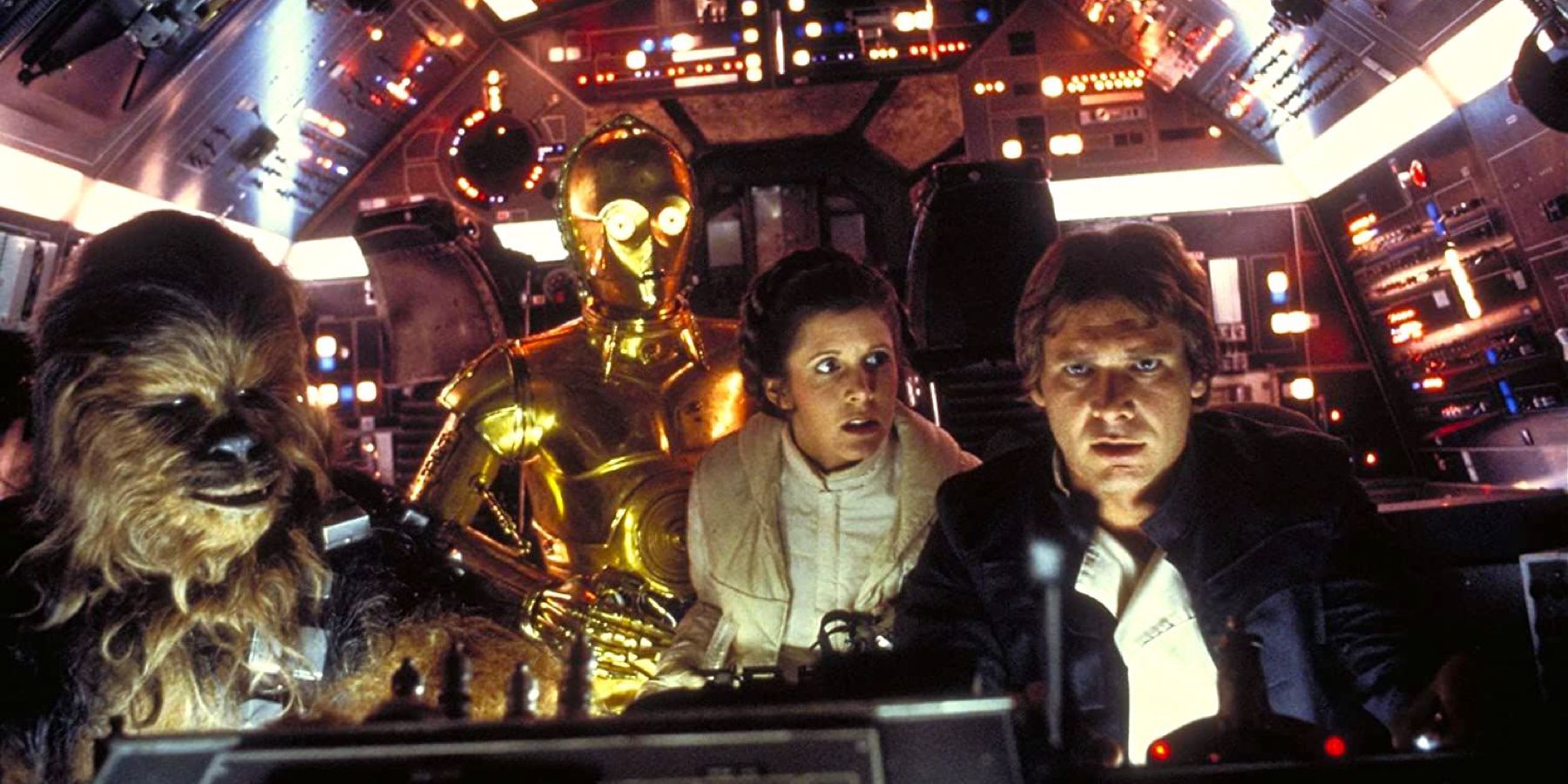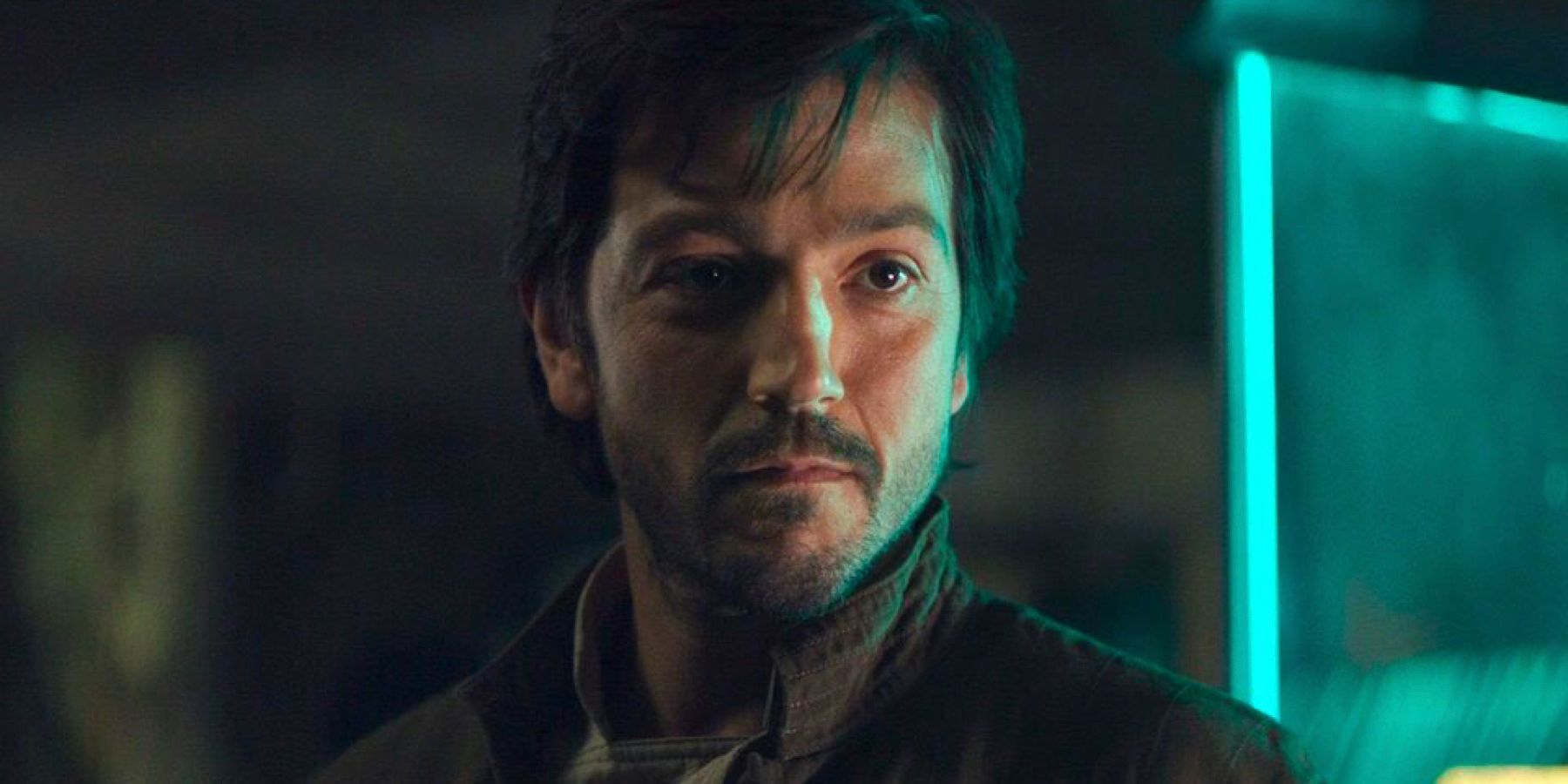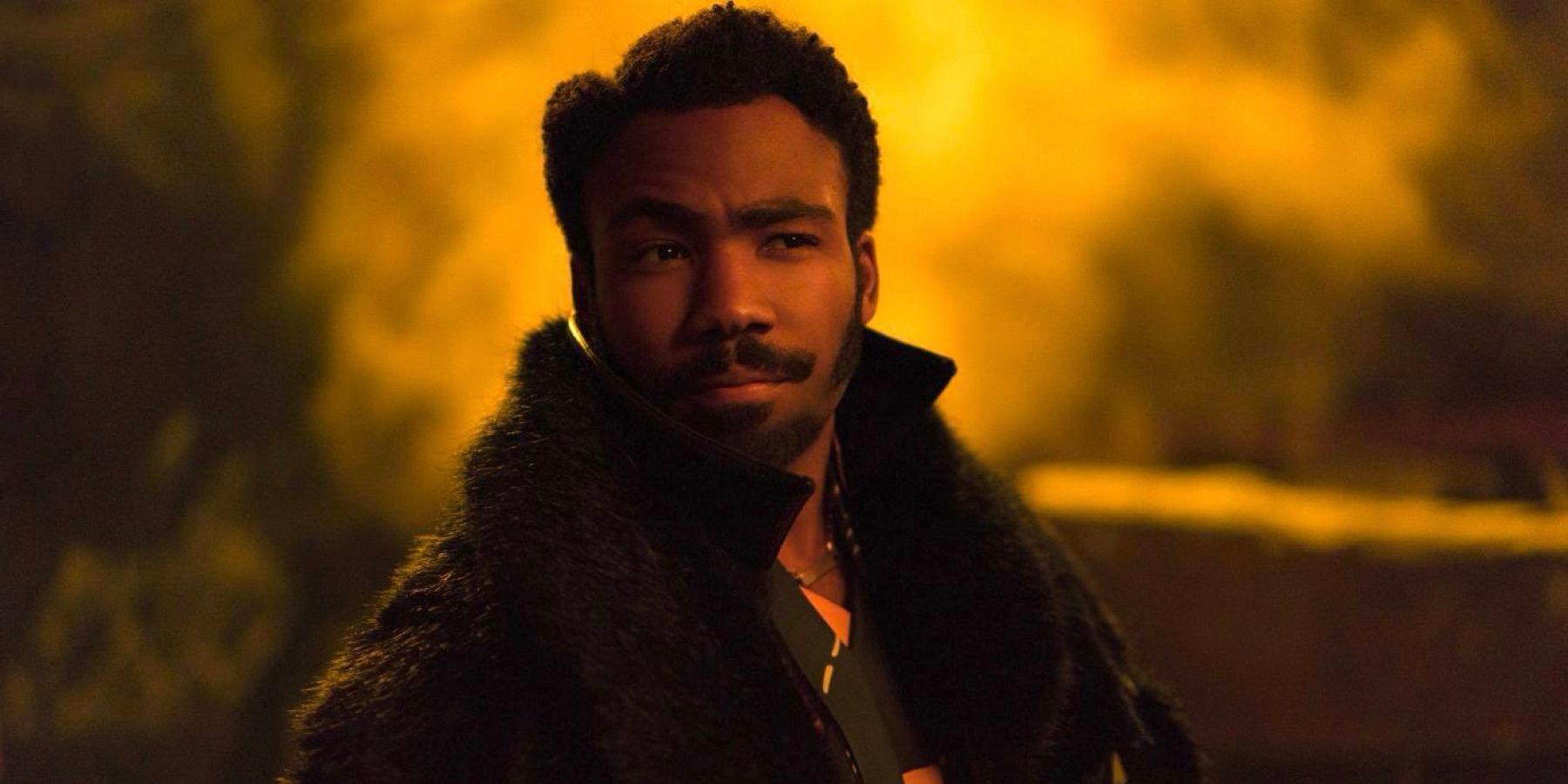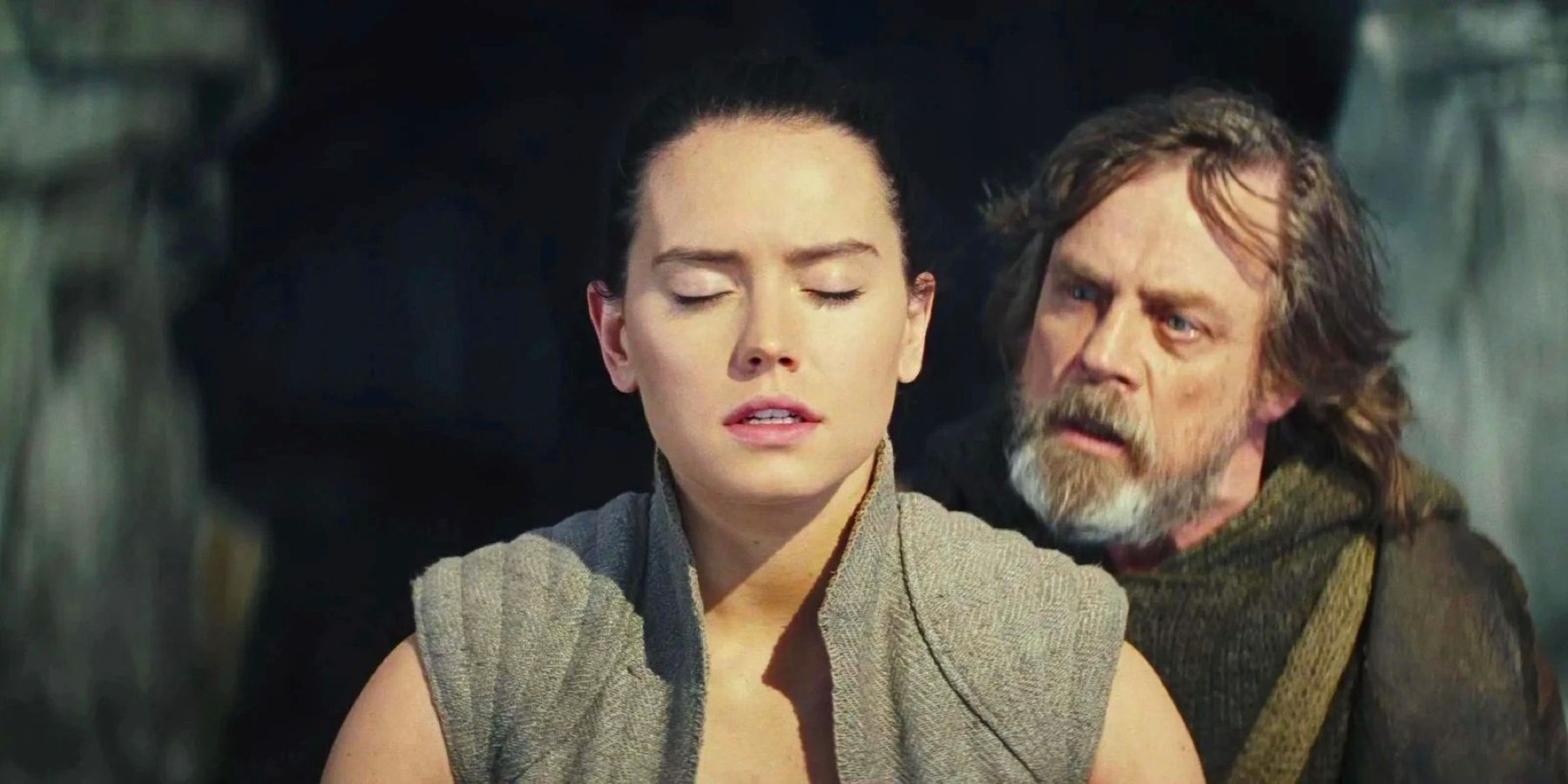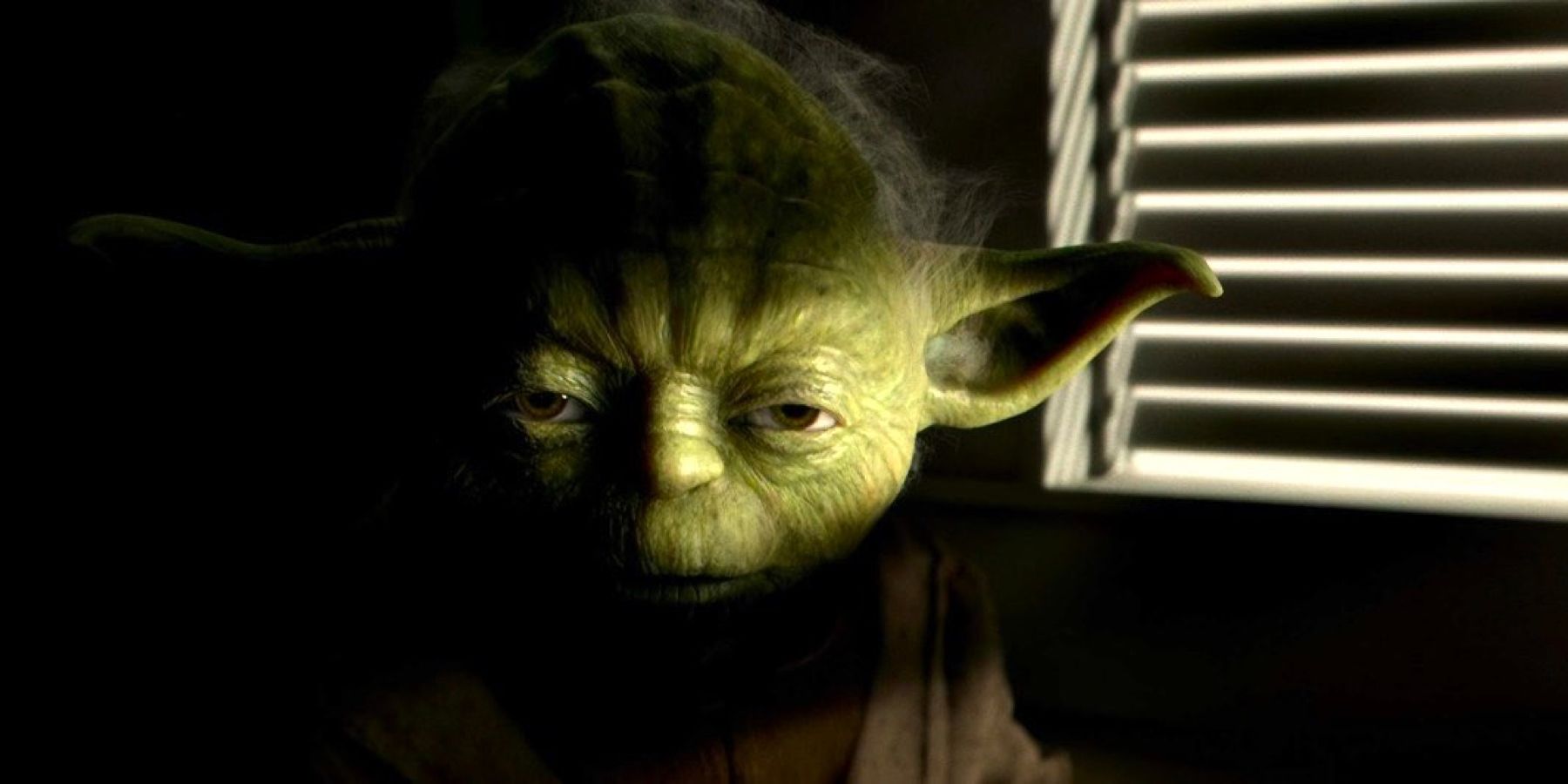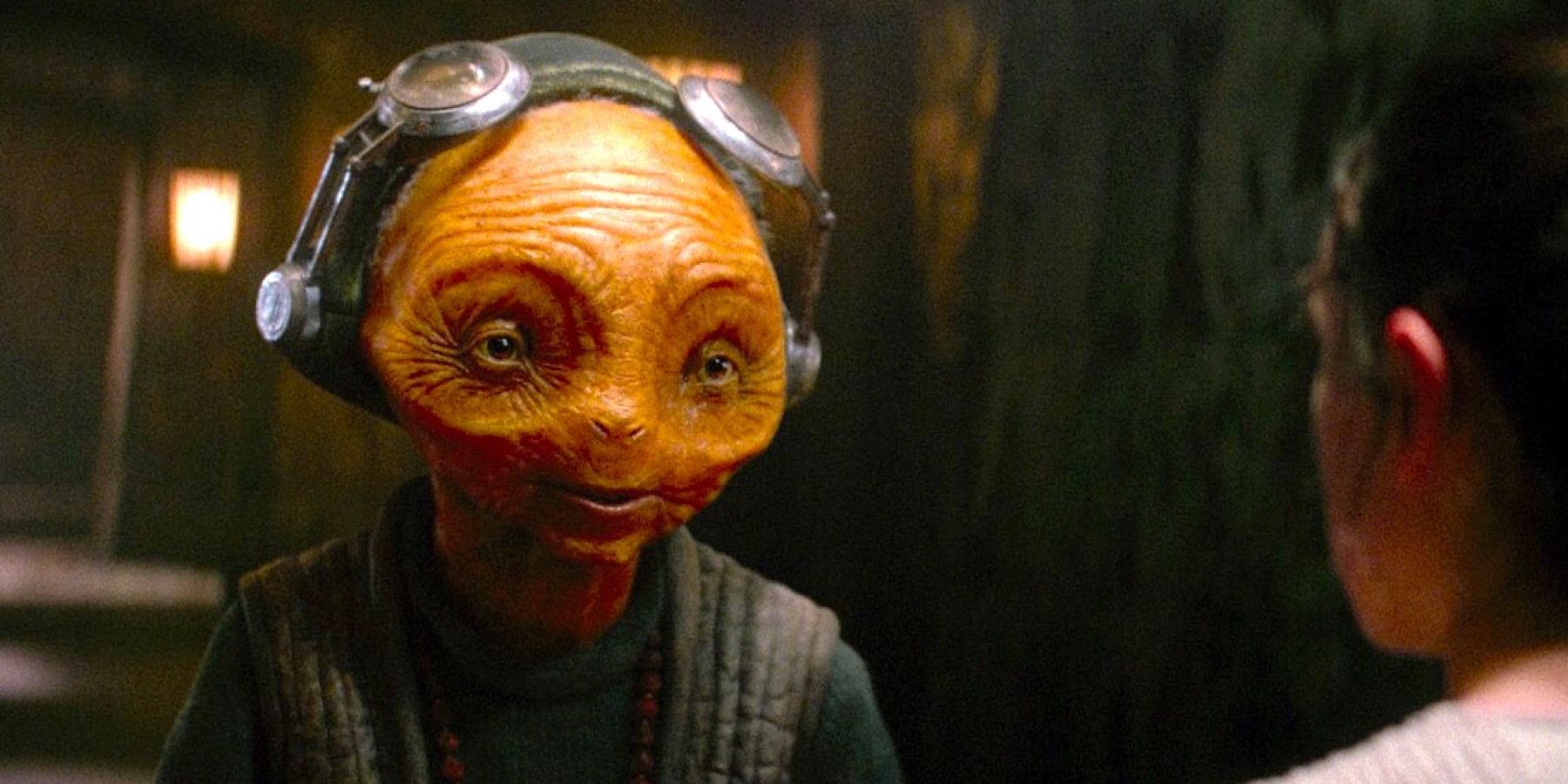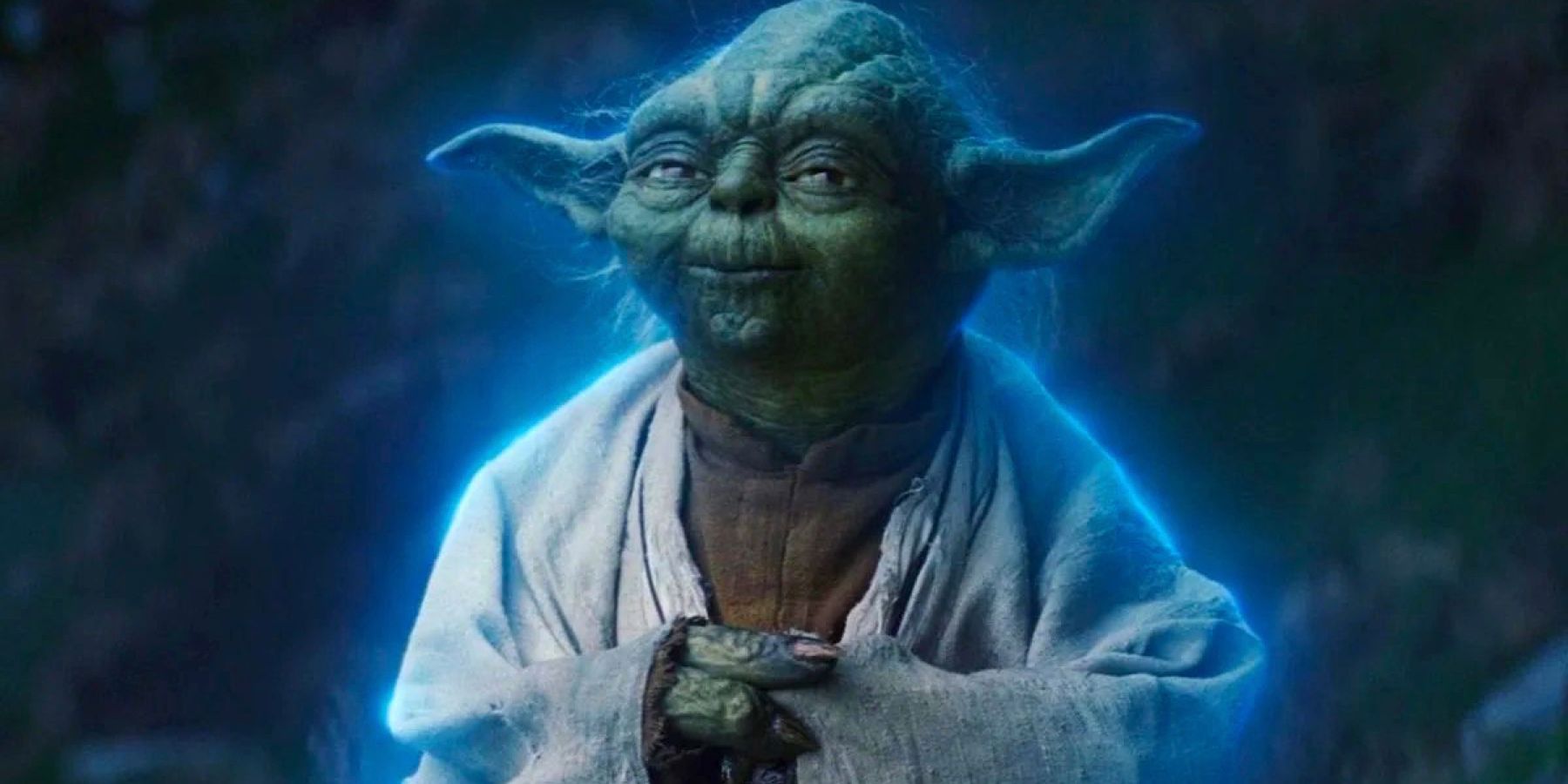With screenplays penned by such legendary screenwriters as Lawrence Kasdan (Raiders of the Lost Ark) and Rian Johnson (Knives Out), the Star Wars franchise is packed with iconic lines of dialogue that have been repeated for generations. From "Do or do not, there is no try" to the ever-memorable "I am your father," it seems that every movie in the Star Wars saga has served up at least one noteworthy idiom.
But even the least-quoted lines may hold some weight. Often, dialogue may fly under the radar on first viewing but gain more significance in retrospect. These underrated lines are ones worth revisiting, as their purpose in the broader scope of the story cuts deeper than a mere catchy one-liner or pivotal turn of phrase. Whether revealing the underlying motivations of characters, foreshadowing future events, or simply disguising a nugget of wisdom within a snappy witticism, there's more to be found in the following lines from Star Wars movies.
10 "Who's the more foolish, the fool or the fool who follows him?"
Obi-Wan Kenobi (Alec Guinness) - 'Star Wars: Episode IV - A New Hope' (1977)
After being pulled into the Death Star via tractor beam, the crew of the Millennium Falcon hide from Stormtroopers in the smuggling compartments stowed beneath the floorboards. When old Ben Kenobi (Sir Alec Guinness) announces he will be venturing out to turn off the tractor beam, Han Solo (Harrison Ford) retorts by calling him an "old fool." Kenobi's sly response serves as a disarming jab at Han Solo's derision and hints at the underlying hypocrisy behind Solo's snide outward persona. He is a fool if he continues to lull himself into believing that the rescue mission for Princess Leia Organa is worth it for the money alone.
This line is a reminder that Obi-Wan hasn't lost his sarcastic streak; in fact, it may have only been exacerbated by age, giving him a dry demeanor that lends itself even better to his underhanded jabs. This line also serves as a subtle literary allusion: the fools or court jesters of Shakespeare's plays are often the smartest characters in the room, speaking directly to the audience and granting insight into the cast's true machinations. By placing himself in the fool's position, Obi-Wan holds more cards than the others, indicating that there's more to this story than Han Solo might understand.
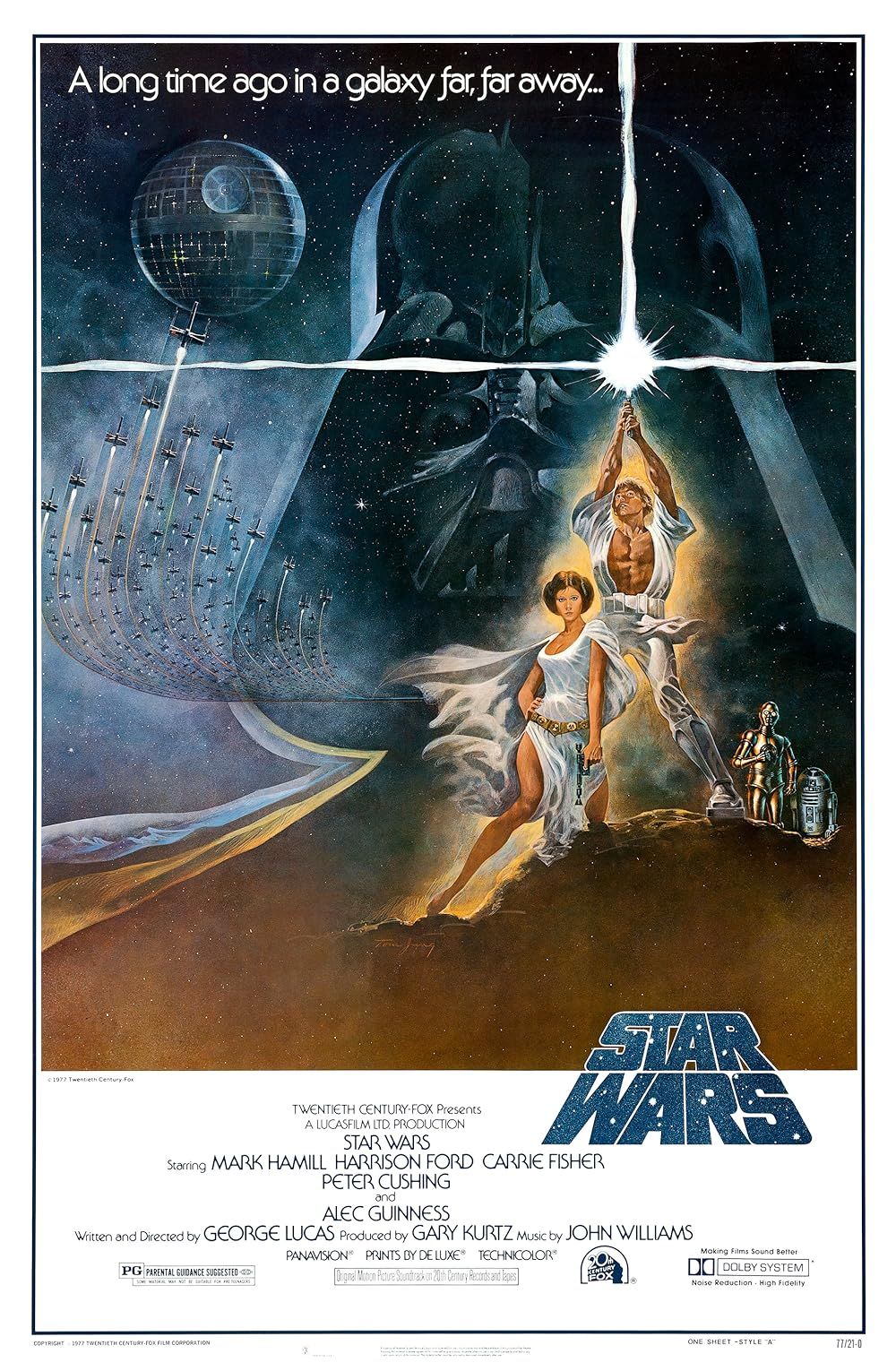
Star Wars: Episode IV - A New Hope
- Release Date
- May 25, 1977
- Director
- George Lucas
- Cast
- Mark Hamill , Harrison Ford , Carrie Fisher , Peter Cushing , Alec Guinness , Anthony Daniels
- Runtime
- 121 minutes
- Writers
- George Lucas
9 "What have I done?"
Anakin Skywalker (Hayden Christensen) - 'Star Wars: Episode III - Revenge of the Sith' (2005)
Following the reveal of Chancellor Palpatine's (Ian McDiarmid) true identity as the evil Darth Sidious, Anakin Skywalker (Hayden Christensen) finds himself caught in a disastrous choice: save the Evil Sith Lord by killing one of his oldest mentors or lose the woman he loves. Ultimately, Anakin chooses to save Palpatine, condemning Mace Windu (Samuel L. Jackson) to a deadly fall. In the aftermath of his nightmarish decision, Anakin cries out in anguish, expressing his confusion and regret in a scene that's elevated by a devastating performance from Hayden Christensen.
This line is a dramatic microcosm of Darth Vader's character arc. A young boy drafted into war before he even understood what it meant to be free, Vader's life is a series of fraught decisions brought on him by his peers and mentors. Forced into making the wrong choice again and again, Vader is plagued by guilt for his actions, further fueling his rage. By asking, "What have I done," Vader claims his responsibility in the trajectory of galactic turmoil, placing himself at the nexus point of where everything goes wrong. His self-awareness underscores his tragedy: if Vader were ignorant of his part in the downfall of democracy, he wouldn't be nearly as compelling.
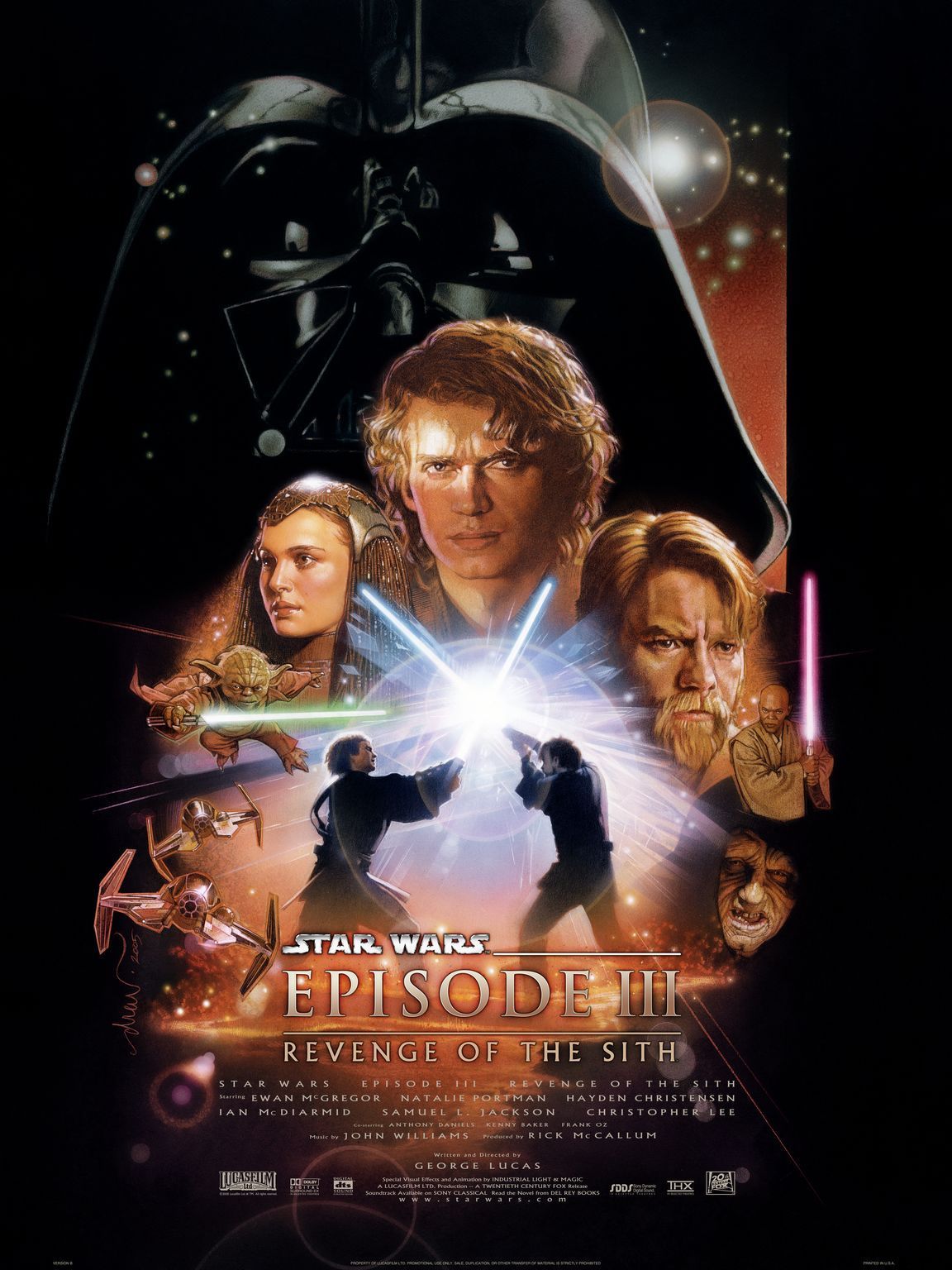
Star Wars: Episode III - Revenge of the Sith
- Release Date
- May 17, 2005
- Director
- George Lucas
- Cast
- Ewan McGregor , Natalie Portman , Hayden Christensen , Ian McDiarmid , Samuel L. Jackson , Jimmy Smits
- Runtime
- 140 minutes
- Writers
- George Lucas , John Ostrander , Jan Duursema
8 "I know what I have to do, but I don't know if I have the strength to do it."
Kylo Ren (Adam Drive) - 'Star Wars: Episode VII - The Force Awakens' (2015)
A line repeated at two key moments in the life of Ben Solo (Adam Driver), it first appears as he confronts his father, Han, on a bridge deep in the thermal oscillator of Starkiller Base. Torn between his allegiance to Supreme Leader Snoke (Andy Serkis) and his continued love for his estranged parents, Kylo Ren expresses his inner conflict while keeping his intentions close to the chest. It is ultimately revealed that the task he must accomplish is the murder of his father, which he carries out to devastating effect. The second time the quote appears is when Ben is again confronted by his father, this time in a Force Vision. At this crossroads, Ben instead chooses to cast off his dark persona as Kylo Ren and reclaim his sense of self.
Ben Solo's conflict is at the core of his character, embodying the psychological turmoil of a lost child. Ben is stunted by his lack of guidance, and his more impulsive qualities resemble the headstrong nature of his mother, Leia (Carrie Fisher). By cutting himself off from the people whom he emulates, Ben is left with only their darker traits and none of their balance. From a young age, Kylo Ren learned to cast off his responsibility by looking to others for instruction, leading him to reject his instincts and lean into the darkness that promised to make him feel whole.
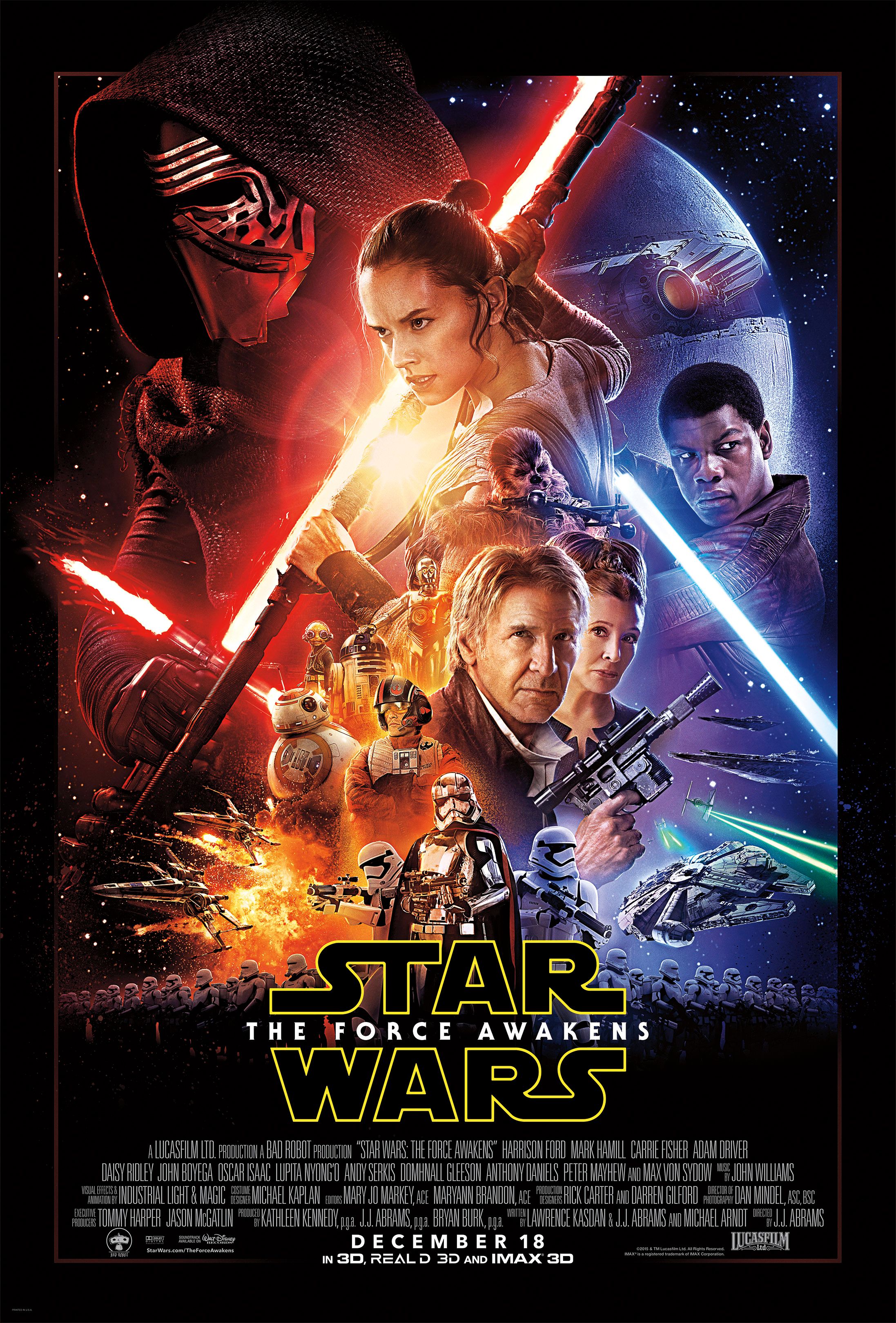
Star Wars: Episode VII - The Force Awakens
- Release Date
- December 18, 2015
- Director
- J.J. Abrams
- Cast
- Daisy Ridley , John Boyega , Oscar Isaac , Domhnall Gleeson , Harrison Ford , Mark Hamill , Carrie Fisher , Adam Driver
- Runtime
- 138 minutes
- Writers
- Lawrence Kasdan , J.J. Abrams , Michael Arndt
7 "Watch this."
Han Solo (Harrison Ford) - 'Star Wars: Episode V - The Empire Strikes Back' (1980)
Han Solo is epitomized by braggadocio and charisma. These qualities are often juxtaposed against his bumbling inner self for comedic effect. While fleeing the Empire in the Millennium Falcon, Han confidently declares, "Watch this!" before immediately failing to jump to Hyperspace. The disgruntled reaction from everyone in the cockpit is played for laughs, but the truth of the interaction cuts deeper.
Han is eager to be seen as capable, even when he barely knows what he's doing. It's a trait further explored in Solo: A Star Wars Story, where Han's overconfidence betrays a boyish charm that hints at his inner insecurity. Despite Han's brash nature, moments like this endear the audience to him. Fans can easily imagine themselves in his position, projecting outward confidence, trying to look cool, and falling flat on their faces in the process. The fundamental tenet at the core of Han's character is that he doesn't let his failures stop him; in fact, they only embolden him.
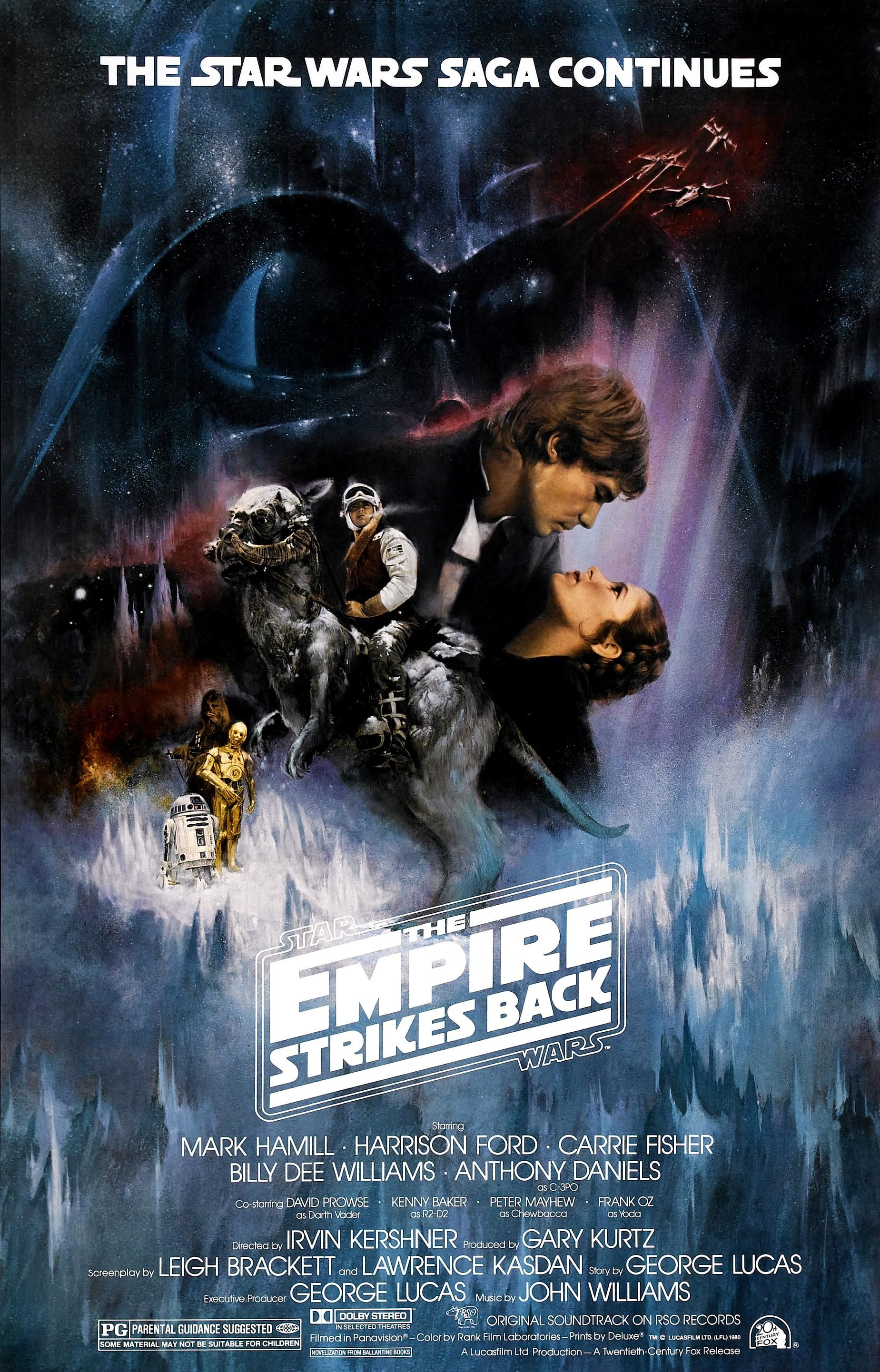
Star Wars: Episode V - The Empire Strikes Back
- Release Date
- June 18, 1980
- Director
- Irvin Kershner
- Cast
- Mark Hamill , Harrison Ford , Carrie Fisher , Billy Dee Williams , Anthony Daniels , David Prowse , Kenny Baker , Peter Mayhew , Frank Oz
- Runtime
- 124 minutes
- Writers
- Irvin Kershner , Lawrence Kasdan , George Lucas
6 "Make ten men feel like a hundred."
Cassian Andor (Diego Luna) - 'Rogue One: A Star Wars Story' (2016)
Tony Gilroy's contribution to the Star Wars mythos cannot be understated. His screenwriting shines in Andor, and his screenplay for Rogue One is no exception. When audiences first meet Cassian Andor (Diego Luna) in 2016's Rogue One, the man is a full-blown believer with a chip on his shoulder and a penchant for getting the job done, no matter the means necessary. Toward the end, Cassian's belief in the cause and his growing friendship with Rebel Leader Jyn Erso (Felicity Jones) results in a powerful speech to the scant Rebel troops preparing to storm the beaches of Scariff. Cassian calls attention to the low number of forces but simultaneously emboldens the recruits with optimistic camaraderie.
Cassian's quote embodies the spirit of the Rebel Alliance: the few against the many, the underdogs against their oppressors; in such a vast galaxy, it is easy to feel alone. But the truth of the Empire's tyranny is indefensible, and the overconfidence of the Emperor is exactly what makes him weak; by joining forces, the Rebellion can secure the upper hand. The small-scale assault results in a small-scale victory: in the grand scheme, the Rebels are only infiltrating Scariff to locate one file out of thousands. But this small battle begets the war, and ultimately allows Luke Skywalker (Mark Hamill) to destroy the Death Star at the end of A New Hope.
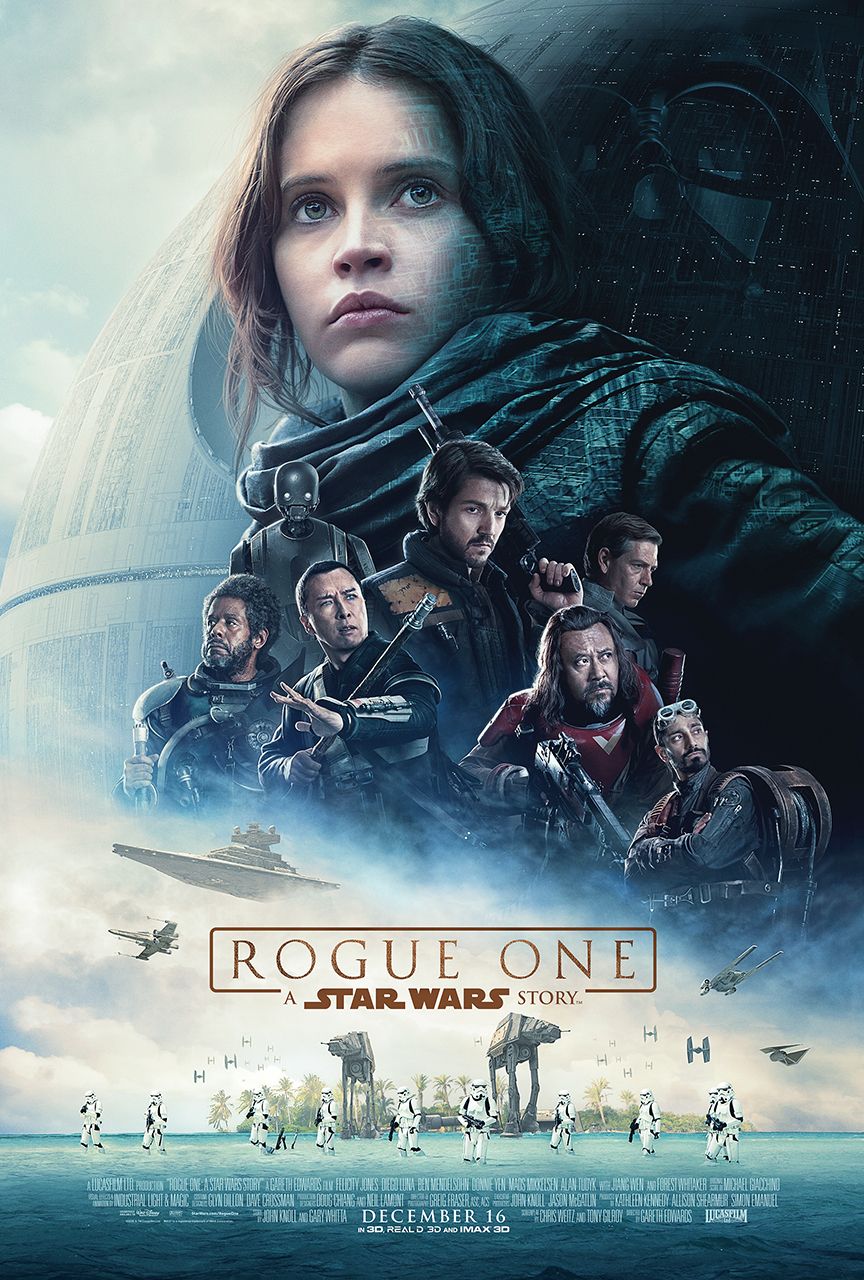
Rogue One: A Star Wars Story
- Release Date
- December 16, 2016
- Director
- Gareth Edwards
- Cast
- Felicity Jones , Diego Luna , Alan Tudyk , Donnie Yen , Wen Jiang , Ben Mendelsohn , Guy Henry , Forest Whitaker
- Runtime
- 133 minutes
- Writers
- Chris Weitz , Tony Gilroy , John Knoll , Gary Whitta , George Lucas
5 "I don't like it. I don't agree with it. But I accept it."
Lando Calrissian (Donald Glover) - 'Solo: A Star Wars Story' (2018)
2018's Solo: A Star Wars Story delivered a fresh take on the smooth-talking smuggler-turned-aristocrat Lando Calrissian with a delightfully comedic turn from Donald Glover. The character was a highlight of the movie for many, and this line is an encapsulation of Lando's approach to negotiation. By submitting to a deal he fundamentally disagrees with, Lando betrays his greatest weakness: his inability to stand up for himself. This flaw allows Darth Vader to play Lando like a fiddle when he ultimately arrives at Cloud City on Bespin in The Empire Strikes Back.
It is a trait that Lando must learn to overcome in subsequent chapters, ultimately atoning for his betrayal of Han by joining the Rebellion proper and leading the attack on the second Death Star as a general in the Rebel Army. This early example foreshadows Lando's later equivocation and grants the audience a better understanding of how Darth Vader may have been able to corner Lando into giving up his oldest friend. This agreement is what leads him to lose the Millennium Falcon, perhaps his greatest regret.
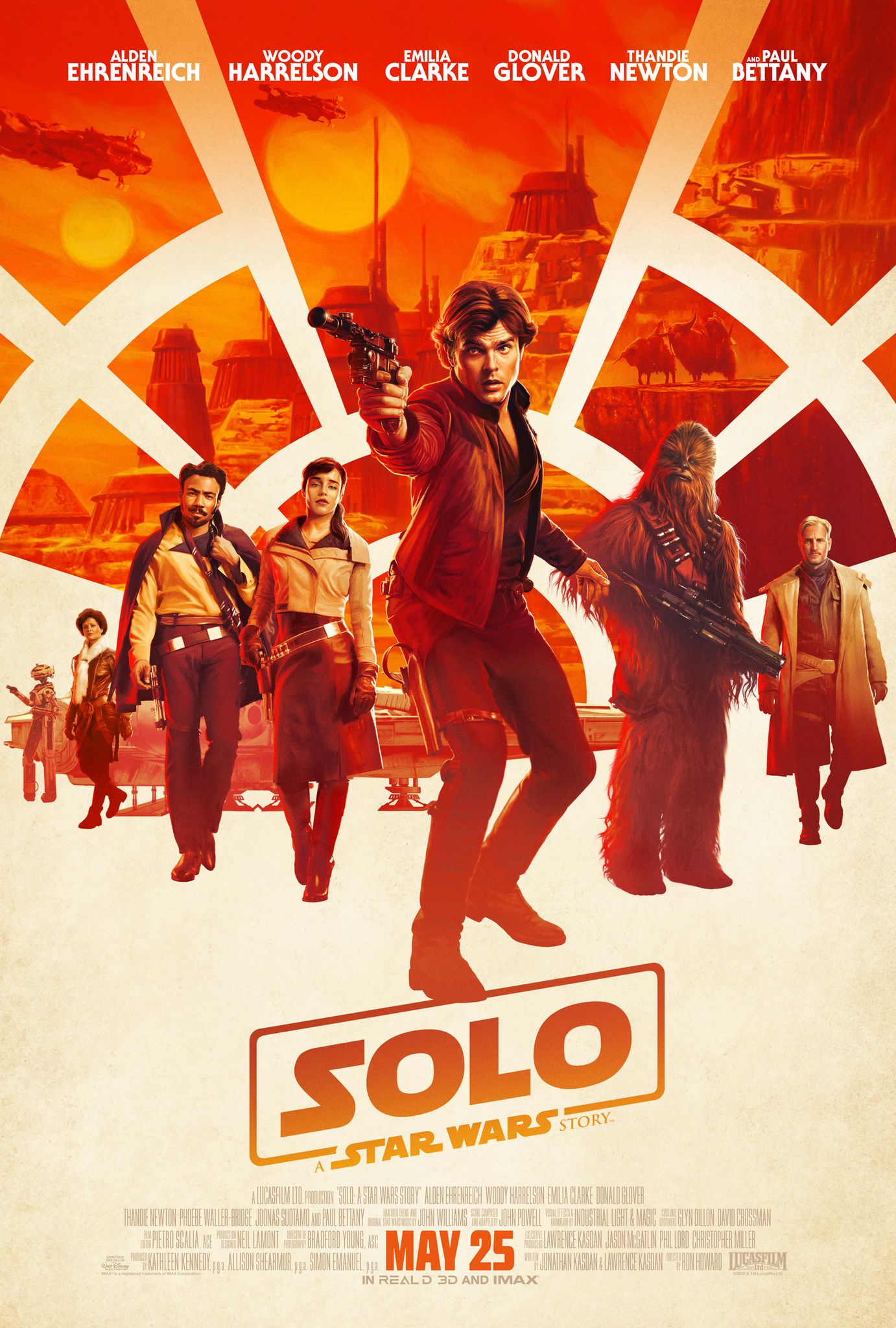
Solo: A Star Wars Story
- Release Date
- May 25, 2018
- Director
- Ron Howard
- Cast
- Alden Ehrenreich , Woody Harrelson , Emilia Clarke , Donald Glover , Joonas Suotamo , Thandiwe Newton
- Runtime
- 135 minutes
- Writers
- Jonathan Kasdan , Lawrence Kasdan , George Lucas
4 "To say that if the Jedi die, the light dies is vanity."
Luke Skywalker (Mark Hamill) - 'Star Wars: Episode VIII - The Last Jedi' (2017)
When Rey (Daisy Ridley) first arrives on the planet of Ahch-To, Jedi Master Luke Skywalker is reluctant to train her, in part due to his fears of inadequacy and his understanding of the folly of the initial Jedi Order. The legend of the Jedi, as it is known to the civilians of the Galaxy, attributes the forces of good and bad to the Jedi and Sith, but Luke calls attention to this fallacy by pointing out that good and bad are concepts that exist outside the balance of the Force. This lesson is one of the first he teaches to Rey and one which holds up upon closer examination of the self-delusion of the Jedi in the prequels.
Rian Johnson's script for The Last Jedi seeks to enter conversation with the greater mythos of the Star Wars saga at every opportunity. Where previous installments sought to reinterpret the mythology, Johnson engages with Star Wars itself, critiquing it, examining it, and ultimately, enriching it with a greater understanding of itself. Such inward examination results in stirring revelations about the nature of the Star Wars universe, further deepening the mythology surrounding the essence of the Force, the connection the Jedi have to it, and the inner psyches of the characters who inhabit the galaxy.
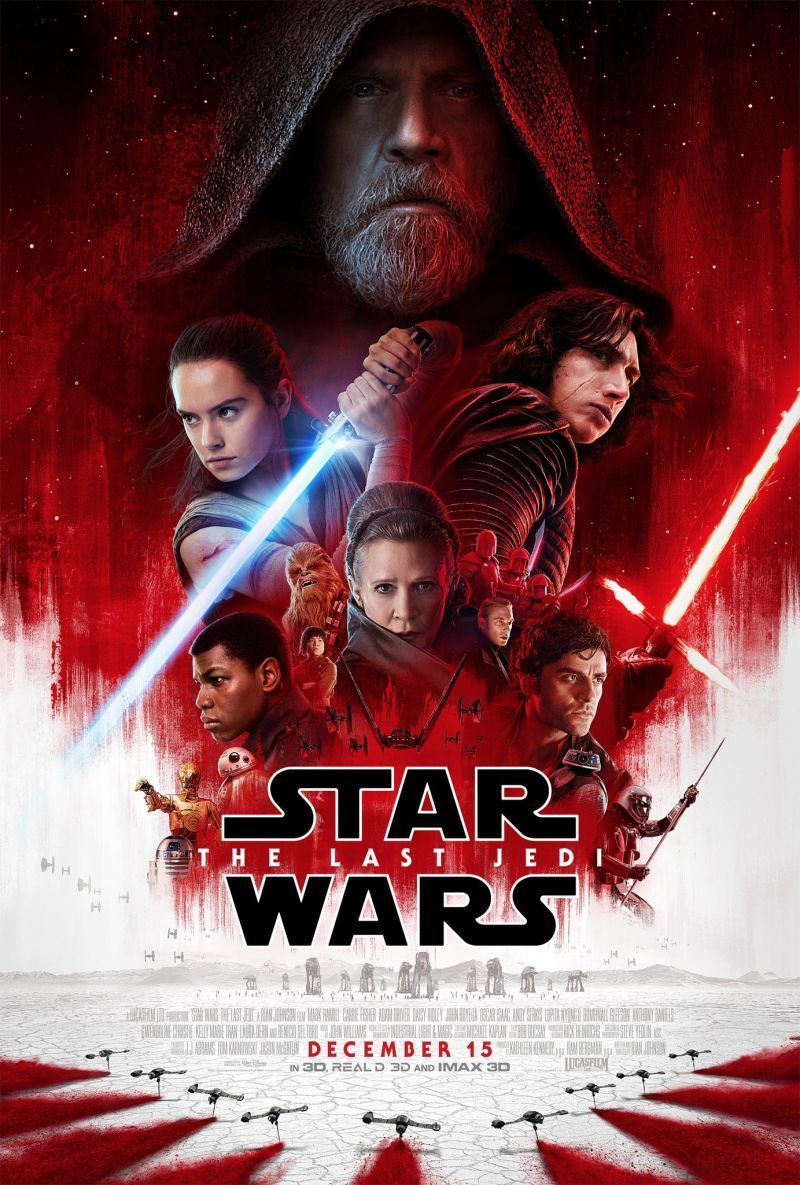
Star Wars: Episode VIII - The Last Jedi
- Release Date
- December 15, 2017
- Director
- Rian Johnson
- Cast
- Daisy Ridley , John Boyega , Mark Hamill , Carrie Fisher , Adam Driver , Oscar Isaac , Andy Serkis , Lupita Nyong'O
- Runtime
- 152 minutes
- Writers
- Rian Johnson , George Lucas
3 "Death is a natural part of life. Rejoice for those around you who transform into the Force."
Yoda (Frank Oz) - 'Star Wars: Episode III Revenge of the Sith' (2005)
As the Clone Wars draw to a close, Anakin Skywalker's inner turmoil hits its peak. Visiting Grand Master Yoda (Frank Oz) for counsel, Yoda offers the young Jedi Knight these words as guidance. Anakin's fear of death is strong, a weakness that Darth Sidious uses to turn him towards the Dark Side. Alas, Yoda's advice reads more like condescension than reassurance; indeed, Anakin's feelings of dismissal at the hands of the Jedi Counsel are only exacerbated by conversations like this, which leave him feeling misunderstood and ignored.
The Jedi Order is not without faults. Notably, Yoda is at the center of many crucial decisions the Jedi make that lead to their ultimate downfall. Yoda's part in the destruction of the Jedi Order may be at the heart of his reasoning for self-imposed exile. The original trilogy grants no further understanding of Yoda's thought process surrounding his previous actions—indeed, he seems to almost double down on his previous statements, insisting that Luke must shed attachment and kill his father to become a Jedi. However, the Sequel Trilogy offers an interpretation of Yoda, who seems to have learned from his failures and humbled himself.
2 "The belonging you seek is not behind you. It is ahead."
Maz Kanata (Lupita Nyong'o) - 'Star Wars: Episode VII - The Force Awakens' (2015)
After leaving her homeworld of Jakku behind to help Finn (John Boyega) and Han Solo transport the valuable information harbored by BB-8, young Rey encounters the mysterious Maz Kanata (Lupita Nyong'o) on Takodana. Their ensuing conversation defines Rey's journey throughout the Sequel Trilogy. As a character preoccupied with her past, she must ultimately learn to look ahead toward her future and inner potential. Maz's wisdom rings true as Rey encounters Kylo Ren, realizes her talent for the Force, and seeks out Luke Skywalker to further her understanding of herself.
The sense of belonging she so craves is offered to her by the darker corners of her life, such as when Ben Solo offers his hand to her or when Palpatine urges her to join her ancestral birthright and take his place as ruler of the Sith. Still, Rey's strength lies in her ability to sort out the confusing emotions surrounding her sense of belonging. In each film, Rey is challenged by notions placed on her by others; Luke sees her as a naive student, Ben Solo sees her as a kindred spirit, and Han sees her as an overeager child. By recognizing her true identity is the one she shapes for herself, Rey becomes one of the most powerful Jedi, defeating Palpatine and her old preoccupation with the past.
1 "The greatest teacher, failure is."
Yoda (Frank Oz) - 'Star Wars: Episode VIII - The Last Jedi' (2017)
When Luke lets Rey slip through his fingers, he fails to raise a new generation of Jedi for the second time. At the lowest point of his life, Luke is visited by the spectral form of his old Master Yoda, who offers him one final lesson: learning to fail. Luke's journey is full of triumphs: Vader's redemption, the destruction of the Death Star, and the victory of the Rebellion. Because of these overwhelming successes, he is unable to cope with his failures. Like Yoda, Luke failed his students and turned to a life of exile rather than trying to help set things right.
This line is monumental, playing a pivotal role in turning Luke's perspective on its head and giving the audience some rare insight into Yoda's psyche. Most importantly, it offers insight into the Jedi Order's true legacy. Star Wars famously relies on archetypes: the age-old symbolic interpretations of the young hero, the mentor, the fool, etc. These archetypes are mapped onto the central cast again and again, placing Luke as the hero, Darth Vader as both the father and the dragon, and old Ben Kenobi as the ghostly, spiritual guide. The Last Jedi shakes things up to the point of pulling these archetypes out of their shells and allowing them to become real characters with flaws, beliefs, traumas, and proper character arcs.

